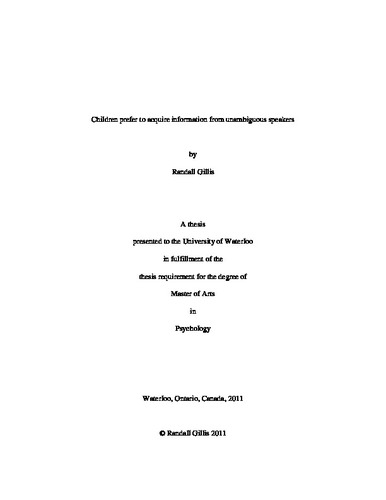| dc.description.abstract | Detecting ambiguity is essential for successful communication. Two studies investigated whether preschool- (4- to 5-year-old) and school-age (6- to 7-year-old) children show sensitivity to communicative ambiguity and can use this cue to determine which speakers constitute valuable informational sources. Children were provided clues to the location of hidden dots by speakers who varied in clarity and accuracy. Subsequently, children decided from whom they would like to receive additional information. In Study 1, preschool- (n=40) and school-age (n=42) children preferred to solicit information from unambiguous than from ambiguous speakers. However, ambiguous speakers were preferred to speakers who provided inaccurate information. In Study 2, when not provided with information about the outcome of the speakers’ clues, school-age (n=22), but not preschool-age (n=19), children preferred unambiguous relative to ambiguous speakers. Results highlight a developmental progression in children’s use of communicative ambiguity as a cue to determining which individuals are preferable informants. | en |

